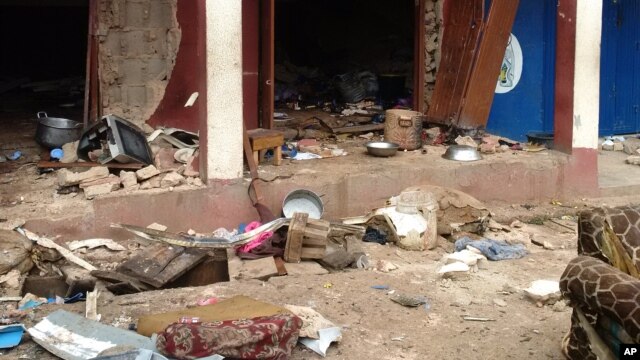Uncategorized
Nigeria Releases 180 Former Boko Haram Suspects

Nigeria’s army has released more than 180 people it had previously suspected of being members of the militant group Boko Haram amid a new wave of violence by the group.
Nigeria’s chief of Army Staff, Lieutenant General Kenneth Minima, said the suspects, which included men, women, and children, were in army detention cells for months. He said they were released Monday to Borno’s state government after an investigation confirmed their innocence.
Nigeria is facing a deadly string of violence blamed on Boko Haram militants that has left more than 200 people dead in the past week.
Bombings at a mosque and restaurant in the central city of Jos late Sunday killed at least 44 people and wounded dozens of others.
Earlier Sunday, a suicide bomber walked into a church in Potiskum, the largest city in Yobe state, and detonated a bomb that killed at least five people. That followed a suicide attack Friday near Maiduguri where officials said six women set off blasts that killed dozens of people.
U.S. State Department spokesman John Kirby condemned the recent Boko Haram attacks in a statement late Sunday and pledged support for the Nigerian people “in their struggle against violent extremism.”
“We continue to support Nigeria’s efforts to bring those responsible for these attacks, as well as previous attacks to justice,” Kirby said. “As we have said before, the people of northern Nigeria deserve to live free from violence and terror.”
He also praised the multinational force that Nigeria and neighbors Chad, Niger and Cameroon set up last month to fight the militants.
Boko Haram, whose name in the Hausa language means “Western education is a sin,” has attacked countless villages, markets, bus stations, government buildings and places of worship since launching its uprising in 2009, leaving thousands dead.
The insurgency has also driven an estimated 1.5 million Nigerians from their homes.
Rights group Amnesty International says Nigerian security forces have killed another 8,000 people with a heavy-handed response. It says 7,000 of those have died in custody because of torture, thirst, hunger or severe overcrowding in jails.
The rights group says senior military officials had full knowledge of the detentions and high death rate, but took no action to halt the abuses.


















